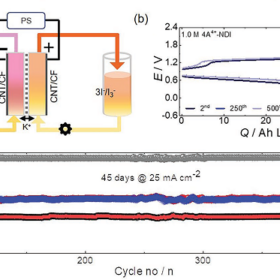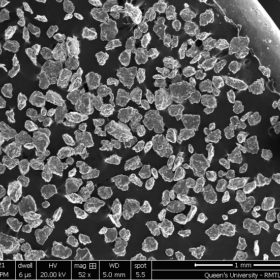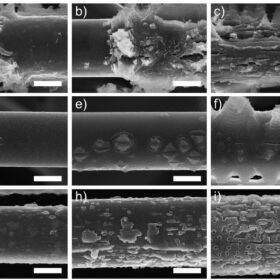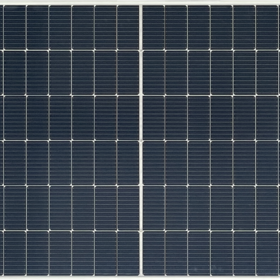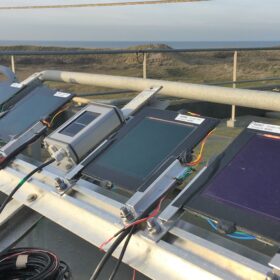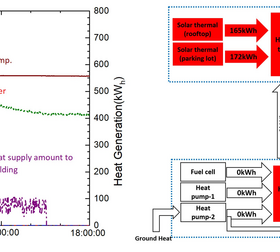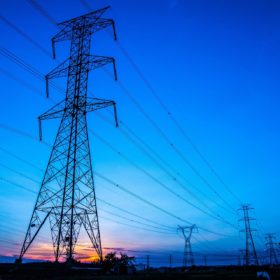South Korea to allocate $185 million for renewables rebates in 2023
The South Korean government says its rebates for building-integrated PV (BIPV) systems have gone up from 13.4% to 15%, but its rebates for conventional rooftop PV systems have gone down from 50% to 47%.
Aqueous redox flow battery based on naphthalene diimide achieves high capacity retention
Scientists in South Korea have developed a highly soluble, stable organic redox-active molecule for use in aqueous redox flow batteries. The newly developed naphthalene diimide (NDI) molecule offered higher storage capacity than existing vanadium devices.
LG reveals plans for US heat pump factory
LG Electronics North America has revealed plans to manufacture 100% electric heat pumps in the United States for the first time.
The Hydrogen Stream: China Southern Power connects hydrogen plants to grid
China Southern Power Grid, a state-owned utility, has revealed plans to use alloy materials to store hydrogen.
South Korea cuts capacity allocations from 4 GW to 2 GW in solar tenders
South Korea has cut its 2030 renewable energy target from 30.2% to just 21.6%, as it seeks to reduce support for solar and other clean energy sources, while preparing the ground for more nuclear power and liquefied natural gas. A lobby group is now challenging the plan in the Seoul Administrative Court.
Paper-thin carbon fiber for battery with 428 Wh/kg energy density
South Korean scientists have developed a new way to integrate a lithium-metal anode into a battery and reach higher energy capacity levels than current lithium-ion tech. They worked with a carbon fiber paper infused with lithium and demonstrated an energy density of 428 Wh/kg, along with encouraging performance in stability and potential ease of manufacturing.
SDN unveils 595 W solar module with 21.28% efficiency
South Korea’s SDN has developed new bifacial solar modules based on M10 wafers. It claims the new panels are the largest to be produced in South Korea.
Dutch-German consortium to bring 2T perovskite/silicon tandem PV to market
The consortium says it intends to develop a simplified approach and best practices to produce 2T perovskite-silicon tandem solar products. The modules should have a bifacial design, glass-glass encapsulation, and a power output of over 300 W/m2.
Renewables-powered heat pump for district heating
South Korean researchers have developed a heat trading system including a ground-source heat pump, solar thermal collectors, a fuel-cell system, and two heat storage tanks for district heating at hours of peak solar production.
Forecasting model to manage renewables-powered grids
Scientists in South Korea have developed a forecasting model to better manage electric grids with high penetration of intermittent renewables. The model was tested using historic data from Pennsylvania-New Jersey-Maryland (PJM) grid in the United States, and shown to accurately forecast the availability of renewable energy resources up to one day in advance.

